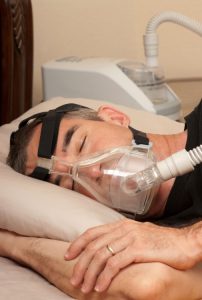 If you’re snoring at night or suffering from other issues associated with sleep apnea, the answer to your problems may rest in your feet.
If you’re snoring at night or suffering from other issues associated with sleep apnea, the answer to your problems may rest in your feet.
According to a new study, exercise was found to be an effective stand-alone treatment for patients suffering from obstructive sleep apnea (OSA). For the study, researchers analyzed the effects of both supervised and unsupervised exercise in patients suffering from OSA. Participants also had their sleep habits tracked throughout the study.
After looking at the data, researchers found that patients reported decreases in apnea/hypopnea index (AHI) scores after completion of exercise routines. They couldn’t point to a reason why exercise helped reduce symptoms associated with sleep apnea, but they noted that it wasn’t body-mass index related. Exercise showed decreases in AHI scores despite having a statistically insignificant effect on BMI.
“It is not fully understood how exercise reduces OSA symptoms, but previous reviews have indicated that the impact of exercise on OSA is not related to reduction of body weight or BMI in both epidemiologic and experimental studies,” said researcher Martina Mookadam. “It does seem to be independent of weight loss. Most of our sleep apnea patients are overweight, but a significant number are not. There is definitely more going on here.”
Exercise Is Best
There are a number of current treatment options for sleep apnea, including diet modification, a CPAP machine or even surgery, but researchers wrote that exercise may be the most beneficial. Exercise can help reduce symptoms of sleep apnea, and it’s a low cost intervention strategy.
“Though lifestyle intervention, upper airway surgery, mandibular advancement, and CPAP [continuous positive airway pressure] have shown similar decreases in OSA indices, exercise programs as treatment reduce AHI and the underlying cause of OSA,” researchers wrote.
Not only can exercise reduce problems associated with sleep apnea, but it has other positive health benefits for your whole body.
“The beauty of exercise is that it does so many good things,” said Mookadam. “Exercise decreases cardiovascular risk, and it helps with hypertension, diabetes, depression, and many other conditions.”
So while the research certainly isn’t groundbreaking – the health benefits of exercise have been documented for hundreds of years – the findings again cast an important spotlight on taking control of our health. We can control the symptoms of sleep apnea by getting on our feet and going for a run. Oftentimes expensive interventions can be avoided if we take ownership in our health. So if you’re suffering from sleep apnea, or you just want to be a little healthier, carve out some time for regular exercise each and every day.